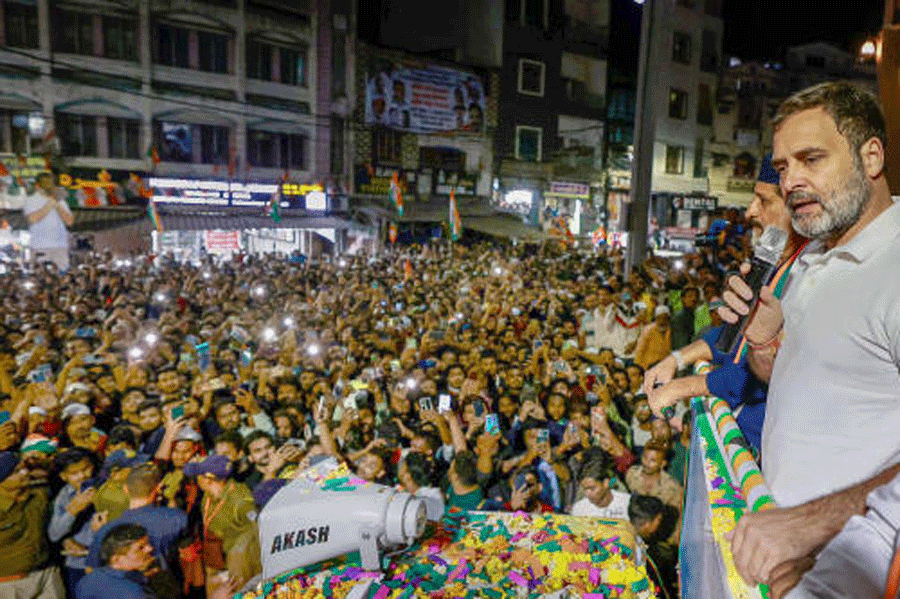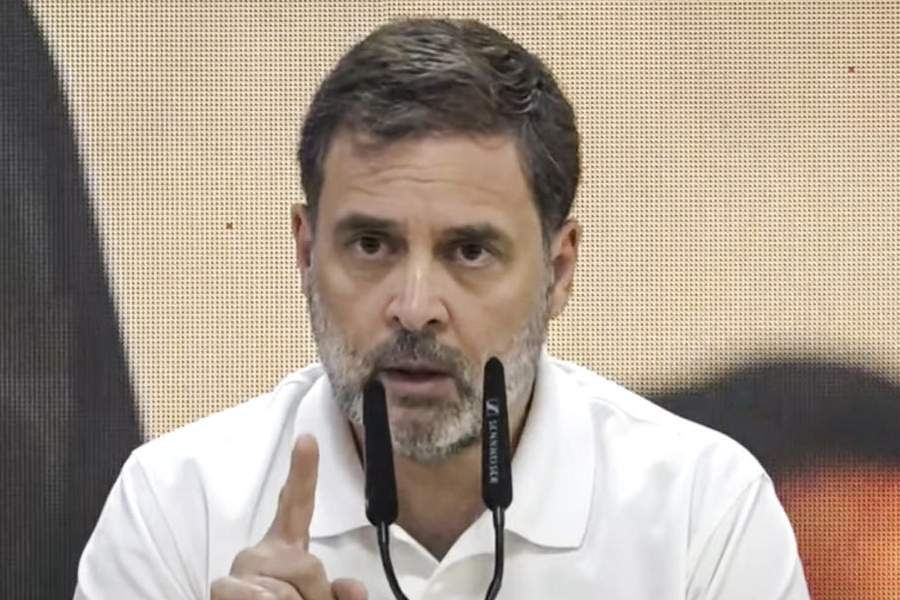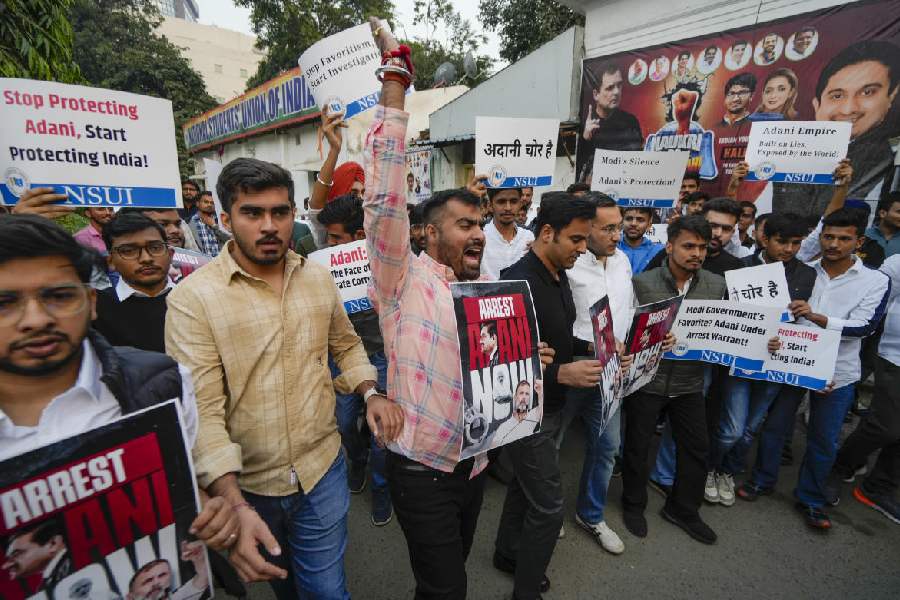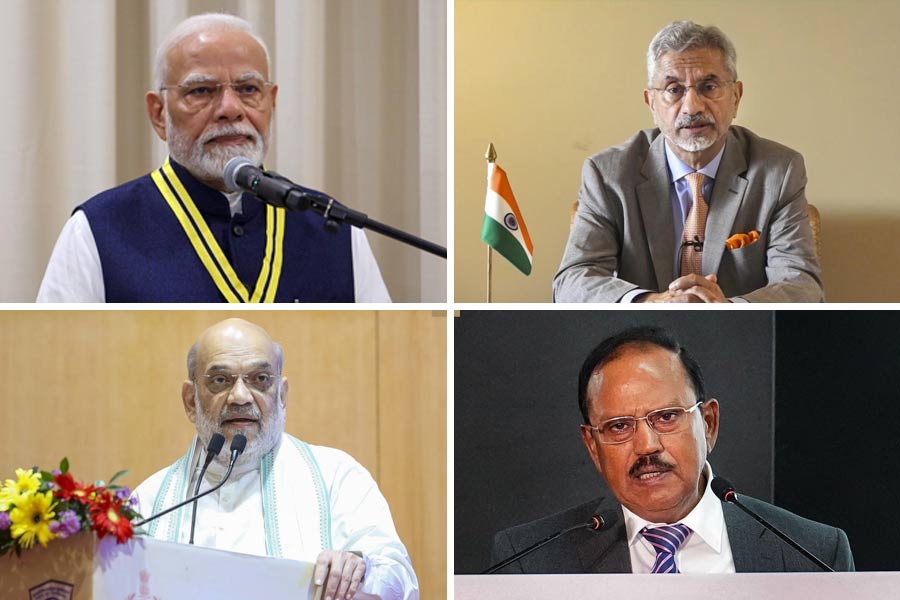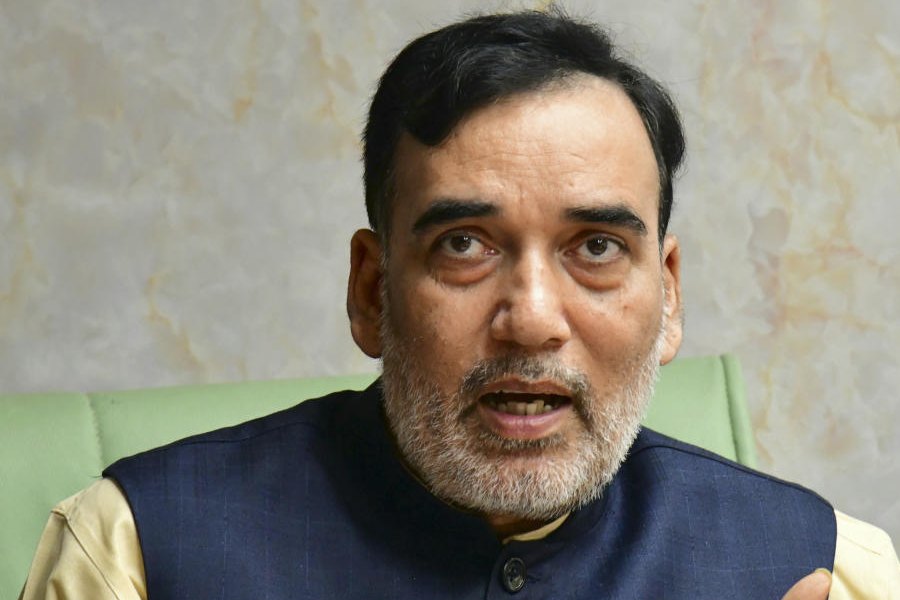As the BJP quietly sheds its contempt for “revdi culture” and embraces “Modi’s guarantee” to match the Congress party’s welfare agenda, Rahul Gandhi and Priyanka Gandhi are out on the poll trail trying to convince people that they should trust leaders only after checking their track record.
Amidst the sharpening poll rhetoric, the Bahujan Samaj Party (BSP) and the Samajwadi Party (SP) to have sprung up in pockets, threatening to fragment the vote shares of the two main players. Observers believe, though, that their impact will remain marginal.
Priyanka has been telling voters to see whether the Congress fulfilled its guarantees in Karnataka, Rajasthan and Chhattisgarh or not. Congress president Mallikarjun Kharge and Rahul have constantly explained how Prime Minister Narendra Modi did not fulfill promises made over the last 10 years.
Modi also tried to tell the people in different public meetings in Chhattisgarh and Madhya Pradesh that the Congress cannot be trusted on its promises. He said: “Ek taraf Congress ki jhooth ki dukan hai, to dusri taraf Modi ki guarantee hai (On one side is Congress party’s shop of lies and on the other side is Modi’s guarantee).”
Talking about the free foodgrain distribution, he said the poor will continue getting “muft ka chana-chaawal” as long as Modi is at the helm.
Campaigning at Neemuch in Madhya Pradesh on Monday, Rahul chose to strike at Modi’s credentials, arguing that he was accustomed to making false promises. Rahul said: “Modiji came here a few days ago and said he opened 500 factories. He had earlier promised to put Rs 15 lakh in every account. Now he says 500 factories set up. Has anybody seen these factories?” The crowd sang in chorus: “No!”
Rahul then repeatedly said: “Koi sharm nahin hai. Zero shame. No shame at all.”
The Prime Minister had addressed a rally in Neemuch three days ago and claimed more than 500 industries had been opened and promised to make Neemuch a leading industrial economy. Rahul grabbed this opportunity to rub the message in that the Prime Minister’s words meant nothing. He asserted that the Congress was going to sweep the election in Madhya Pradesh.
While the Congress does appear to have an edge in most parts of the state, there are no indications of a sweep as the ruling BJP has a broad support base, setting up tough contests in a large number of constituencies. Madhya Pradesh is a direct fight between the BJP and the Congress but smaller parties can play a critical role in a fiercely contested election, as manifested so vividly in the 2018 election.
What has happened in the state for the first time is the coalition of two parties representing the interest of Scheduled Castes and Scheduled tribes — the BSP and the Gondwana Gantantra Party (GGP). There are 35 seats reserved for SCs and 47 reserved for STs out of the total 230 seats. While the BSP has substantial influence in Gwalior-Chambal belt, areas neighbouring Uttar Pradesh, the GGP is active in Balaghat, Mandla, Dindori, Seoni, Chhindwara and Betul.
Though the BSP won only two seats in the last election, it had 5 per cent vote which can turn critical in a tight contest. In 2018, the Congress had won 114 seats with 40.89 per cent of the vote while the BJP was close behind with 109 seats and a larger share of 41.02 per cent vote. Even a minor swing can change political fortunes and the BSP is likely to increase its vote-share this time in alliance with the Gondwana party, which has traditionally cornered around 2 per cent vote.
The BSP is contesting 178 seats and the GGP has fielded candidates in 52 constituencies. While it is difficult to guess how many of these candidates are in a winning position, this unique combine of SC-ST parties may slice away substantial number of votes in over dozen seats which where a three-corner contest has developed.
While these parties cut both ways, harming both the BJP and the Congress, the division of anti-incumbency vote is bound to help the ruling party. Among the reserved seats, the Congress had won 47 and the BJP 34 last time, which means the Congress has to protect a much bigger area from the BSP-GGP than the BJP. Many strong Congress and BJP rebels are contesting on BSP-GGP tickets. While the Congress has 37 rebel candidates, the BJP has 35.
Confounding the confusion, even the Samajwadi Party has fielded over 70 candidates and the Aam Aadmi Party is contesting 66 constituencies. Both these parties have taken a strident anti-BJP position and will largely cut into anti-incumbency vote-bank. The Congress would expect these parties to support it in case of a shortfall in Assembly numbers but how much damage they will inflict as vote-cutters remains moot.

